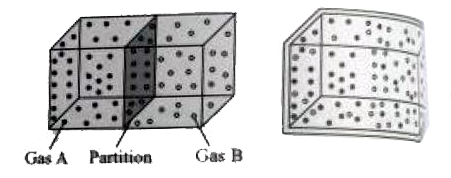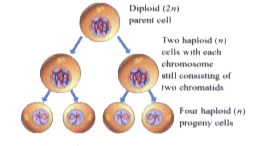Identify the process in which metals are gradually eaten by exposure to air and moisture.
Corrosion
Gangue removal
Physical reaction
Reversible reaction
The correct Answer is:A
Step-by-Step Solution:
1. Understanding the Question: The question asks for the process by which metals are gradually deteriorated when they come into contact with air and moisture.
2. Identifying the Options: The options provided are:
- Corrosion
- Gang removal
- Physical reaction
- Reversible reaction
3. Analyzing Each Option:
- Corrosion: This is the process where metals react with moisture and air, leading to their gradual deterioration. For example, iron reacts with oxygen and moisture to form rust.
- Gang Removal: This refers to the process of removing impurities from ores, not related to the deterioration of metals.
- Physical Reaction: This involves changes that do not alter the chemical composition of substances, which does not apply to the gradual eating away of metals.
- Reversible Reaction: This is a type of chemical reaction where the products can revert back to the original reactants, which is not relevant to the corrosion process.
4. Conclusion: Based on the analysis, the correct answer is Corrosion, as it specifically describes the process of metals being gradually eaten away due to exposure to air and moisture.
Final Answer: The process in which metals are gradually eaten by exposure to air and moisture is called Corrosion.
---
- Corrosion
- Gang removal
- Physical reaction
- Reversible reaction
- Corrosion: This is the process where metals react with moisture and air, leading to their gradual deterioration. For example, iron reacts with oxygen and moisture to form rust.
- Gang Removal: This refers to the process of removing impurities from ores, not related to the deterioration of metals.
- Physical Reaction: This involves changes that do not alter the chemical composition of substances, which does not apply to the gradual eating away of metals.
- Reversible Reaction: This is a type of chemical reaction where the products can revert back to the original reactants, which is not relevant to the corrosion process.
Topper's Solved these Questions
- BOOK - PEARSON IIT JEE FOUNDATIONCHAPTER - METALS AND NON-METALSEXERCISE - CLASSROOM CORNER (LONG ANSWER TYPE QUESTION)18videos
METALS AND NON-METALS
- BOOK - PEARSON IIT JEE FOUNDATIONCHAPTER - Language of Chemistry and Transformation of SuubstancesEXERCISE - Concept Application Concept Application Level - 114videos
Language of Chemistry and Transformation of Suubstances
- BOOK - PEARSON IIT JEE FOUNDATIONCHAPTER - MOCK TEST EXERCISE - Question5videos
MOCK TEST
Similar Questions
Knowledge Check
- Question 1 - Select One
The metals are eaten away when they are exposed to water, oxygen and other chemicals. What is this process known as ?
ARustingBCorrosionCAbrasionDNone of these - Question 2 - Select One
Identify the process which is not a part of water cycle.
AEvaporationBCondensationCTranspirationDSublimation - Question 3 - Select One
Identify the process which is not a part of water cycle.
AEvaporationBCondensationCTranspirationDSublimation
Identify the process in which change in the oxidation state is five :
View SolutionIdentify the process which occur in the above diagram?
 View Solution
View SolutionIdentify the process which occur in the above diagram?
 View Solution
View SolutionIdentify the metal which is non-malleable.
View SolutionIdentify the process which is not involved in respiration.
View Solution


